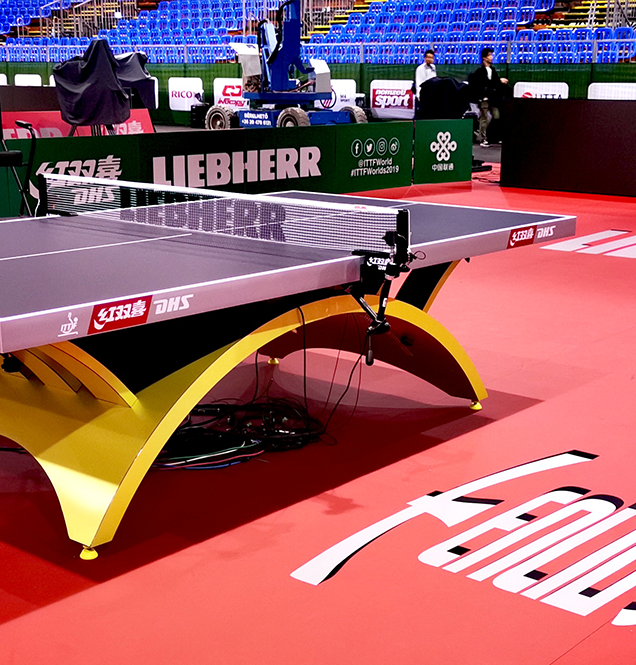Nov . 20, 2024 09:37 Back to list
commercial flooring types
Understanding Commercial Flooring Types A Comprehensive Guide
When selecting flooring for commercial spaces, the options can feel overwhelming. The right flooring not only enhances the aesthetics of the space but also plays a critical role in functionality, durability, and maintenance. Understanding the various types of commercial flooring available can help business owners make informed decisions that meet their specific needs. This article will explore popular commercial flooring types, their features, advantages, and ideal applications.
1. Carpet Tiles
Carpet tiles are a versatile flooring option commonly used in offices, retail spaces, and healthcare environments. These modular carpets come in squares, allowing for easy installation and replacement. Available in various designs, colors, and textures, carpet tiles can be mixed and matched to create unique patterns.
Advantages Carpet tiles provide excellent sound absorption, making them ideal for busy office environments. They are also comfortable underfoot, and their modularity means that damaged tiles can be easily replaced without the need to replace the entire carpet.
Ideal Applications Offices, educational institutions, and healthcare facilities.
2. Vinyl Flooring
Vinyl flooring is a highly durable and water-resistant option, making it suitable for a wide range of commercial applications. Available in sheets, tiles, or planks, vinyl flooring mimics the look of natural materials such as wood or stone at a fraction of the cost.
Advantages Vinyl is easy to clean, comfortable to walk on, and resistant to scratches and dents. Additionally, it is affordable and has a quick installation process, making it an attractive choice for businesses looking to minimize downtime.
Ideal Applications Restaurants, retail stores, healthcare facilities, and fitness centers.
3. Linoleum Flooring
Linoleum is an eco-friendly flooring option made from natural materials, including linseed oil, cork dust, and wood flour. It is available in sheets and tiles and offers a wide range of colors and patterns.
Advantages Linoleum is naturally anti-bacterial and highly resilient, making it a hygienic choice for commercial spaces. Its lifespan can be extensive, and it requires minimal maintenance.
Ideal Applications Hospitals, schools, and kitchens.
Hardwood flooring exudes elegance and warmth, making it a popular choice for upscale commercial spaces like hotels, restaurants, and retail stores. While it can be more expensive, the aesthetics and durability can justify the investment.
commercial flooring types

Advantages Hardwood offers a timeless appeal and can be refinished multiple times throughout its lifespan, ensuring it maintains its beauty even in high-traffic areas.
Ideal Applications High-end retail stores, restaurants, and corporate offices.
5. Rubber Flooring
Rubber flooring is a practical and durable choice that is popular in commercial and industrial settings. It comes in tiles or rolls and is often used in gyms, playgrounds, and healthcare facilities due to its slip-resistance and cushioning properties.
Advantages Rubber flooring is extremely durable, resistant to impacts, and provides excellent traction, making it safe for various environments. It’s also easy to maintain and can reduce noise levels in busy areas.
Ideal Applications Gyms, schools, hospitals, and industrial settings.
6. Epoxy Flooring
Epoxy flooring is a high-performance option often used in warehouses, manufacturing facilities, and garages. It consists of a resin and hardener that creates a strong, seamless surface.
Advantages Epoxy is resistant to chemical spills, heavy loads, and impacts. Its durability and easy maintenance make it a long-lasting choice for areas exposed to high traffic and potential damage.
Ideal Applications Warehouses, factories, and garage floors.
7. Concrete Flooring
Concrete flooring is a strong, durable option that has gained popularity in modern commercial design. When polished or stained, concrete can provide a sleek, contemporary look that complements various interior styles.
Advantages Concrete is incredibly versatile, customizable, and resistant to wear and tear. It also reflects light, which can help brighten up commercial spaces.
Ideal Applications Retail spaces, art galleries, and warehouses.
Conclusion
Choosing the right commercial flooring type is crucial for creating a functional and aesthetically pleasing environment. Each type of flooring comes with its unique set of benefits, making it essential for business owners to consider factors such as durability, maintenance, aesthetics, and budget when making their decision. By understanding the various options available, you can select the best flooring solution for your commercial space, ensuring it meets both your operational needs and aesthetic preferences.
-
Sport Court Tiles with AI Innovation | Durable & Safe
NewsAug.01,2025
-
Vinyl Carpet Flooring | Durable & Waterproof Design
NewsJul.31,2025
-
Premium Basketball Board Stand with GPT-4-Turbo AI
NewsJul.31,2025
-
Premium Maple Flooring for Gyms & Homes | PVC & Vinyl Options
NewsJul.30,2025
-
Premium Outdoor Basketball Court Tiles for All Weather Use
NewsJul.30,2025
-
Durable Basketball Board Stand for Indoor & Outdoor Use
NewsJul.29,2025

